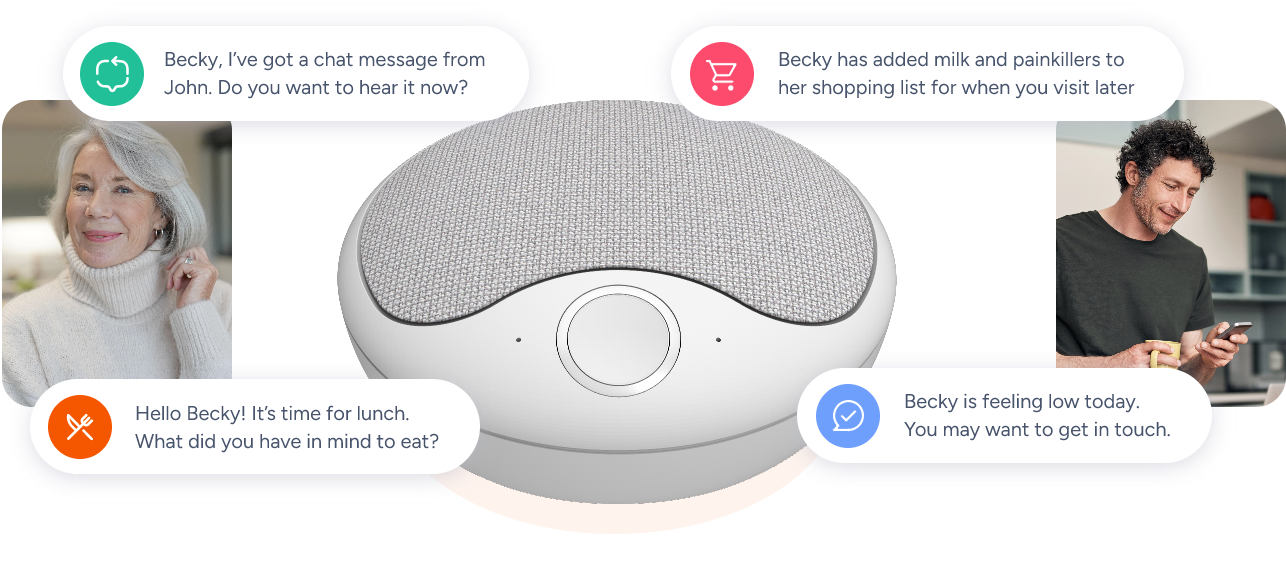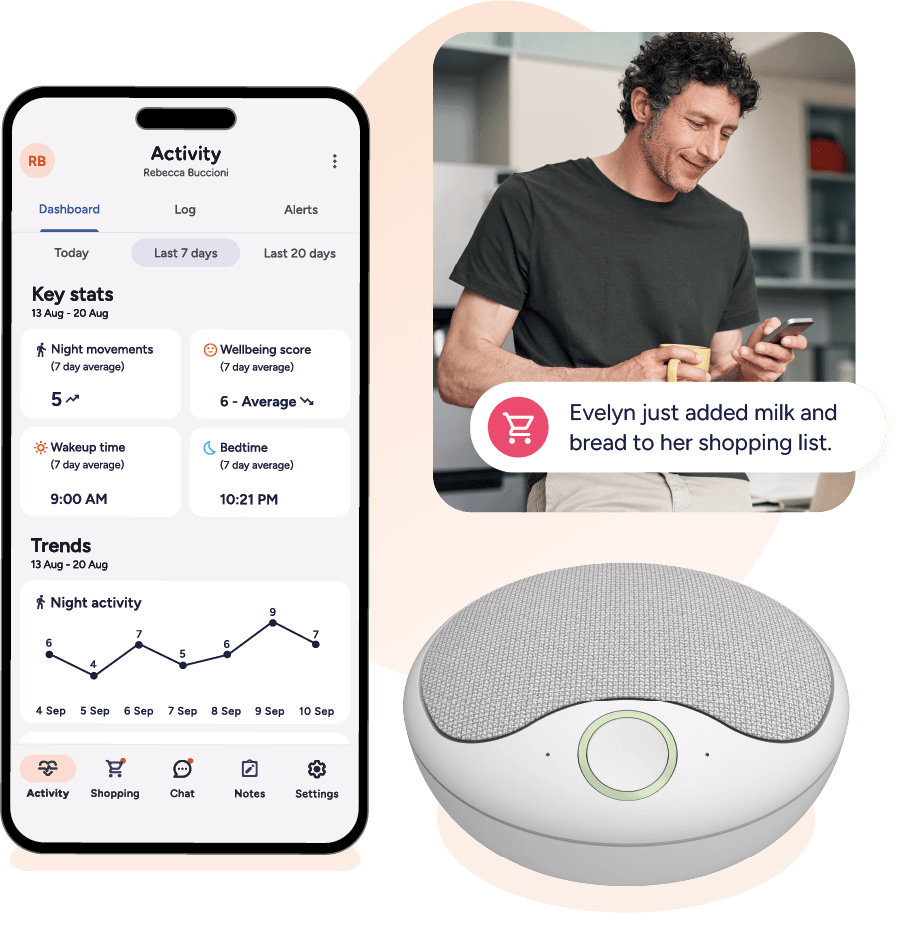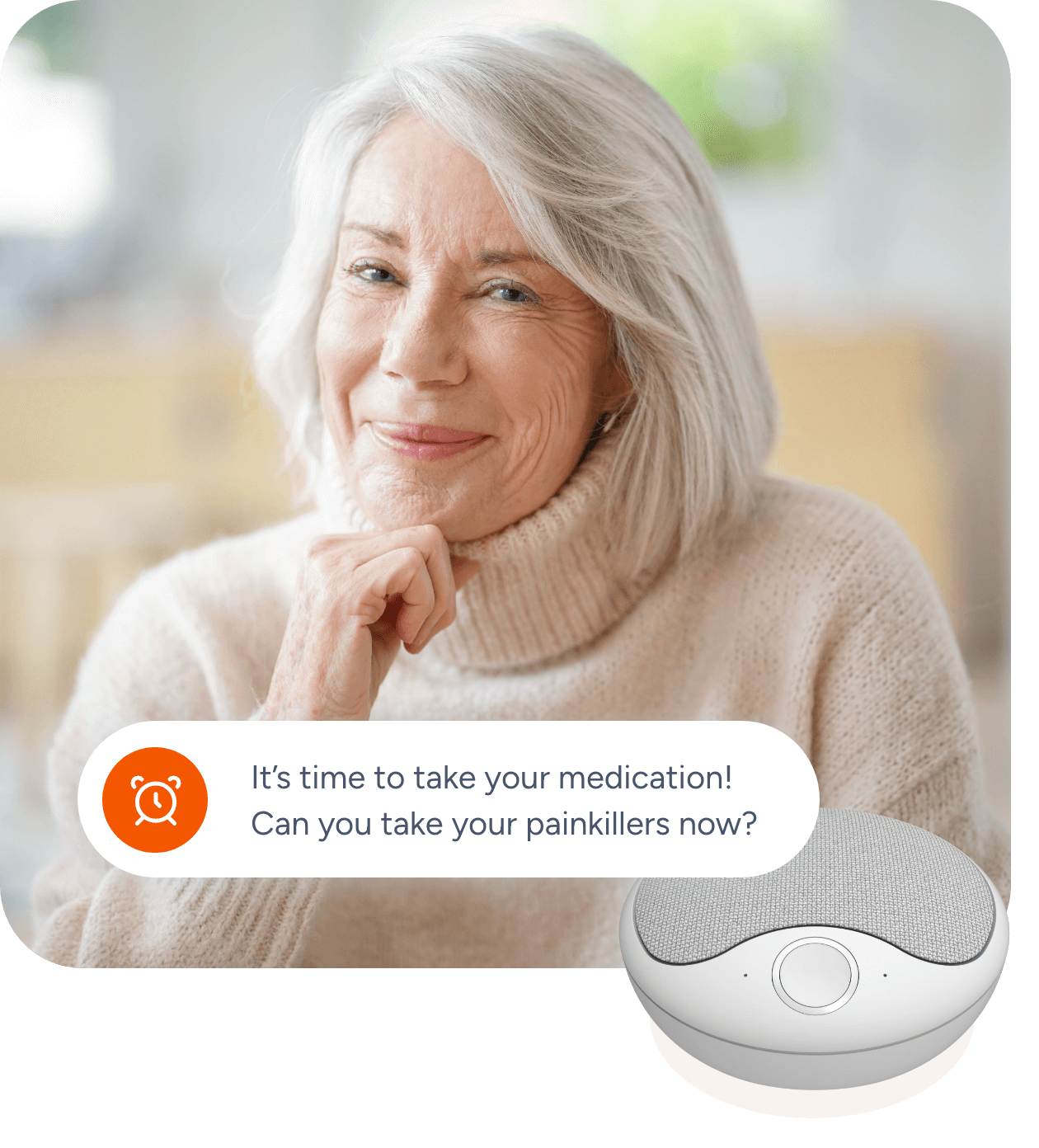More Than a Smart Speaker: Sentai vs. Alexa in the Modern Care Landscape
WRITTEN BY SENTAI ON 13TH NOVEMBER 2024

In an era of increasing technological complexity and shifting social dynamics, the challenges of caregiving have never been more pronounced. The Autumn Budget has just revealed that the weekly Carer’s Allowance will be increased to 16 hours at the National Living Wage, worth an additional £45 a week from April next year. This is a huge step in the right direction, but still leaves the question – how can we support elderly loved ones in ways that are practical, affordable and allows for fulfilling and independent lives?
This is also emphasised by new research revealing a startling reality: 1 in 5 individuals are simultaneously navigating the delicate balance of professional work and personal caregiving responsibilities. This mounting pressure has created a critical need for innovative support solutions that bridge the gap between technology and human connection.
While Amazon’s Alexa has been a household name in the consumer world for years, a new player is emerging that goes beyond simple voice commands and device control. Meet Sentai – a revolutionary voice-enabled digital companion designed to address the complex emotional and practical needs of individuals, particularly those requiring additional support in their own homes.
Beyond Voice Commands: The Companionship Difference
The current market for digital care products is awash with products that monitor movements and health, but Sentai differs by providing genuine companionship through an AI-enabled smart speaker. Unlike traditional smart speakers that respond to set commants Sentai is purpose-built to provide a nuanced, empathetic interaction experience based on natural conversation.
What makes Sentai unique?
1. Natural conversation
Unlike conventional smart speakers, Sentai learns and adapts to individual communication styles. Sentai enables a completely natural conversation with a user whereas multiple topics can be covered, for example for a complete digital wellbeing check. Sentai can switch tasks easily if users take the conversation somewhere else, whilst it doesn’t forget the original objective of a conversation, for example to remind users of their medication or check their wellbeing.
2. Responsible AI
With carefully implemented content filtering, Sentai ensures conversations remain meaningful and on-topic. This isn’t just about preventing inappropriate responses – it’s about creating a safe, supportive communication environment.
3. Holistic Connectivity
The device isn’t just a speaker – it’s a comprehensive care ecosystem. With an in-built hub and optional presence sensors, plus the app for family members and carers. Sentai provides unprecedented visibility into an individual’s wellbeing.

Family and Carer Support: A Comprehensive Care Ecosystem
The Sentai app transforms the caregiving experience into a seamless, supportive journey. Imagine a solution that doesn’t just monitor but genuinely connects and empowers families and caregivers. Through an intuitive, user-friendly interface, the app becomes a lifeline of communication and support.
Carers can now access real-time insights into their loved one’s daily activities, receiving nuanced notifications that go beyond simple alerts. Need to know if medication has been taken? Wondering about daily movement patterns? Curious about urgent shopping requirements? The Sentai app provides these insights with unprecedented clarity and immediacy.
But Sentai goes further. The platform allows for shared shopping lists, ensuring no essential items are forgotten. Care notes can be easily documented and shared, creating a collaborative approach to supporting an old adult that keeps everyone informed and engaged. Perhaps most critically, the app facilitates direct connections with professional care providers if needed, transforming fragmented care systems into a unified, responsive support network.
The Human Touch in Technology

While traditional digital assistants like Alexa remain rigid command-response tools, Sentai introduces a revolutionary approach to technological companionship. This isn’t about replacing human connections, but about meaningfully enhancing them.
Unlike current lifestyle monitoring solutions that merely collect quantitative data, Sentai offers a deeply empathetic experience. It learns and adapts through natural conversation, understanding users with the nuanced perception of a trusted friend. By analysing conversational patterns and contextual cues, Sentai goes beyond surface-level interactions to provide qualitative insights into a user’s well-being.
The platform’s most profound innovation lies in its proactive care approach. Sentai can detect subtle behavioural changes that might indicate emotional distress or health concerns, enabling immediate, compassionate intervention. If unusual patterns emerge, it can discreetly alert the user’s care network, ensuring timely support without compromising personal dignity.
More than a technological product, Sentai represents a compassionate solution to modern challenges of isolation and fragmented care. By integrating artificial intelligence with human-centric design, it creates a holistic support ecosystem that includes family, friends, and caregivers—transforming how we conceptualize personal care and technological assistance.
Sentai isn’t just another tool—it’s a bridge between technology and genuine human connection.
Looking Forward
The NHS will remain on life support until we fix the social care crisis, therefore as our population ages and caregiving support becomes increasingly complex, technologies like Sentai offer hope. They demonstrate that intelligent design can create solutions that are not just functional, but truly supportive and empathetic.
They offer older adults a dignified and fun solution when they need that little extra support throughout the day as well as promoting independence and reducing loneliness.
Sentai isn’t just another smart speaker – it’s a companion, a communication bridge, and a lifeline for individuals and their support networks.


